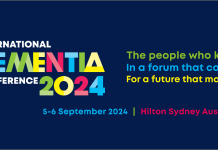Telehealth provider Coviu is leading the development of an AI digital toolkit for managing wound care, allowing health care professionals to manage care remotely through virtual consultations.
The telehealth solution is being developed in cooperation with CSIRO, The University of Sydney, Australian Unity, Western NSW Primary Health Network and The University of Technology Sydney. It has received funding through the Federal Government’s Medical Research Future Fund.
The new suite of digital tools will provide a one-stop-shop for clinicians caring for wounds, which have become even more acute during the pandemic, especially in regional areas where there are workforce shortages.
The cost of chronic wounds is equivalent to more than $3.5 billion, approximately 2 per cent of national healthcare expenditure, with more than 400,000 Australians estimated to suffer at any time.
Mobile imaging, powered by artificial intelligence (AI), will allow practitioners to remotely analyse and monitor wounds over time. From a video feed, clinicians will assess vital sign metrics, such as a patient’s heart and respiratory rate.
Commenting on the technology, Dr, Annie Banbury, Clinical Research Lead at Coviu said, “The wound care digital toolkit gives us an enormous opportunity to make a difference to the health and quality of life of aged care residents. It will support clinicians, such as GPs, to make data-informed clinical decisions for wound care during a telehealth video call. It will also allow more clinicians to provide high-quality wound care to residential aged care settings. The toolkit will continue building Coviu’s AI digital tools to support health care providers”.
“The toolkit will bring together organisations with a range of expertise – from creating the AI solution with wound care experts to its implementation in residential aged care. For this project, we have Coviu, leading research institutions, aged care providers and specialists in rural health and health economics. To have the backing of the Federal Government’s Medical Research Future Fund is fantastic – we can’t wait to get started.”
Associate Professor Georgina Luscombe, at The University of Sydney School of Rural Health, said: “This funding will give nurses, doctors and allied health professionals the digital tools to better assess and treat wounds. This is particularly needed in rural and remote areas where there is a lack of specialist wound care services. Since rural populations tend to be older and face healthcare access challenges, telehealth has great advantages in the support of rural residents of aged care facilities. Delivering care virtually means reducing the need for frail elderly to be transported to healthcare, and for clinicians to enter facilities – an advantage that the Covid-19 pandemic helped us appreciate.
The technology is being co-designed with consumers and clinicians, and testing will involve residential aged care facilities in Victoria and NSW. Part of this testing involves assessing how the technology can best be rolled out and integrated into routine healthcare. This project has the potential to support our health workforce and benefit communities right across Australia.”
Dr Salvado, Head of Imaging and Computer Vision at CSIRO, said: “User-centred design and rigorous clinical validation are at the heart of this project. Our multidisciplinary team will bring new AI computer vision technologies into a clinical setting and create products that will address often overlooked and preventable health issue
Development for the Digital Wound Care toolkit will begin in 2022 and be available through the Coviu platform in 2026.










